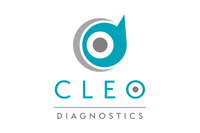Medtronic IN.PACT Admiral Drug Coated Balloon Receives FDA Approval to Treat Long SFA Lesions
Medtronic (NYSE:MDT) today announced that it has received U.S. Food and Drug Administration (FDA) approval for the IN.PACT(TM) Admiral(TM) Drug-Coated Balloon (DCB) to treat long superficial femoral artery (SFA) lesions up to 360mm in patients with peripheral artery disease (PAD). As quoted in the press release: Approval was based on clinical data from the complex …
Medtronic (NYSE:MDT) today announced that it has received U.S. Food and Drug Administration (FDA) approval for the IN.PACT(TM) Admiral(TM) Drug-Coated Balloon (DCB) to treat long superficial femoral artery (SFA) lesions up to 360mm in patients with peripheral artery disease (PAD).
As quoted in the press release:
Approval was based on clinical data from the complex lesion imaging cohorts of the IN.PACT Global Study, including long lesion, in-stent restenosis, and chronic total occlusion (CTO) groups with lesion lengths >180mm. Across these groups, a total of 227 subjects with mean lesion lengths of 28.7 ± 7.1 cm were analyzed. Data showed a one-year patency rate of 89.1 percent by Kaplan Meier estimate at day 360, and a clinically-driven target revascularization (CD-TLR) rate of 7.1 percent.
“Data from the IN.PACT Global Study demonstrate that IN.PACT Admiral DCB is a safe and effective treatment option in real-world patients with lesions beyond 180 mm, frequently comprised of in-stent restenosis and chronic total occlusions,” said Daniel Clair, M.D., chair of the Department of Surgery for University of South Carolina (USC) and the Palmetto Health-USC Medical Group. “More specifically, these results show maintenance of strong clinical outcomes, including a high primary patency rate and limited need for reintervention in patients exhibiting these complex, long lesions – among the most prevalent cases we see. The FDA’s approval of this expanded indication now offers U.S. physicians a clinically-proven endovascular therapy to address this critical patient need.”



